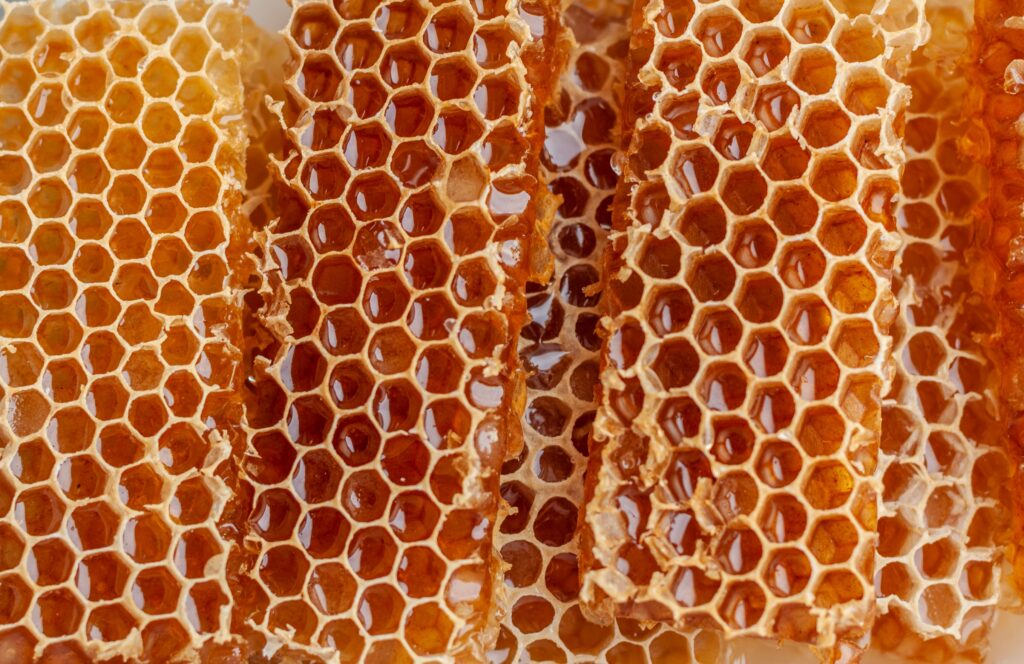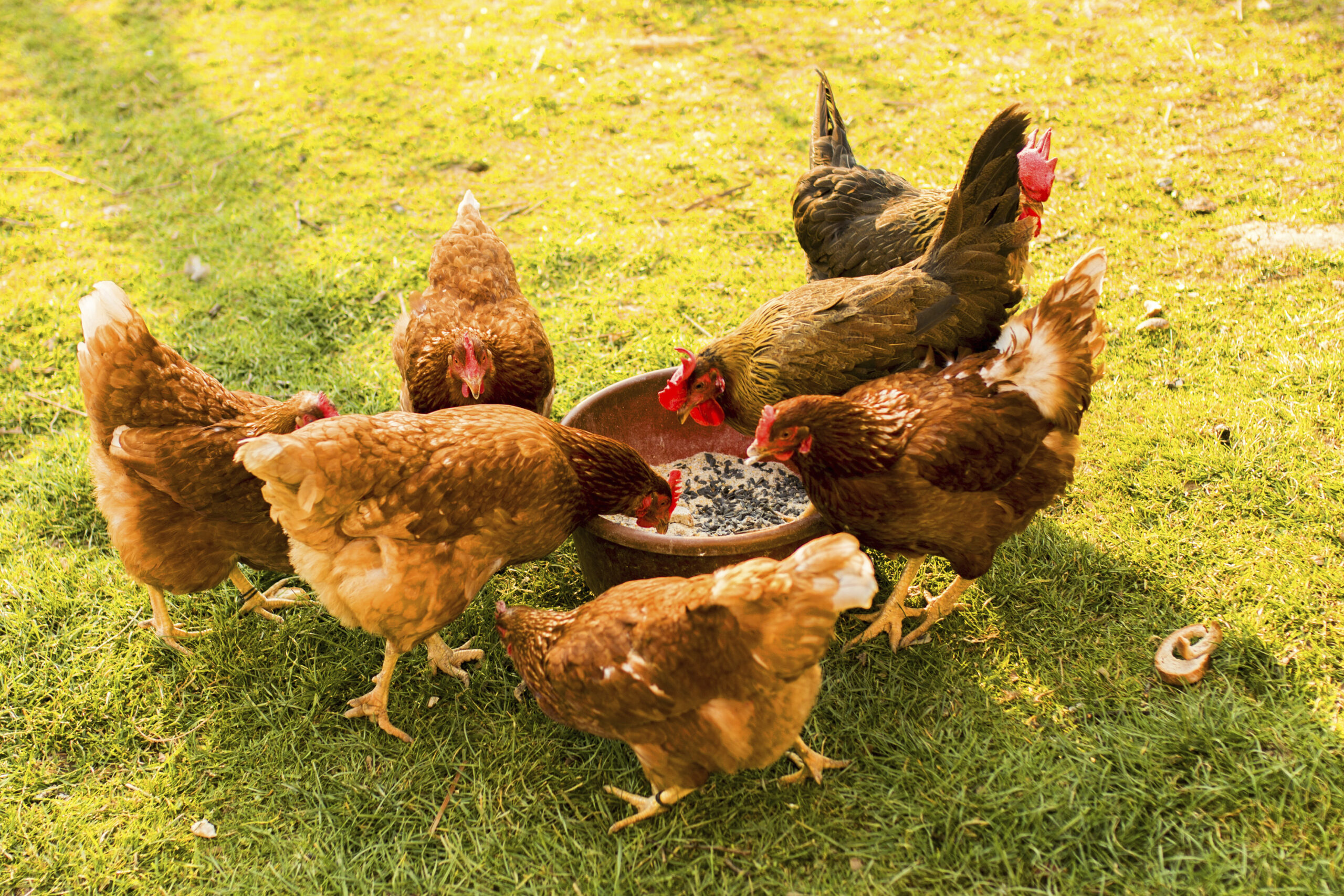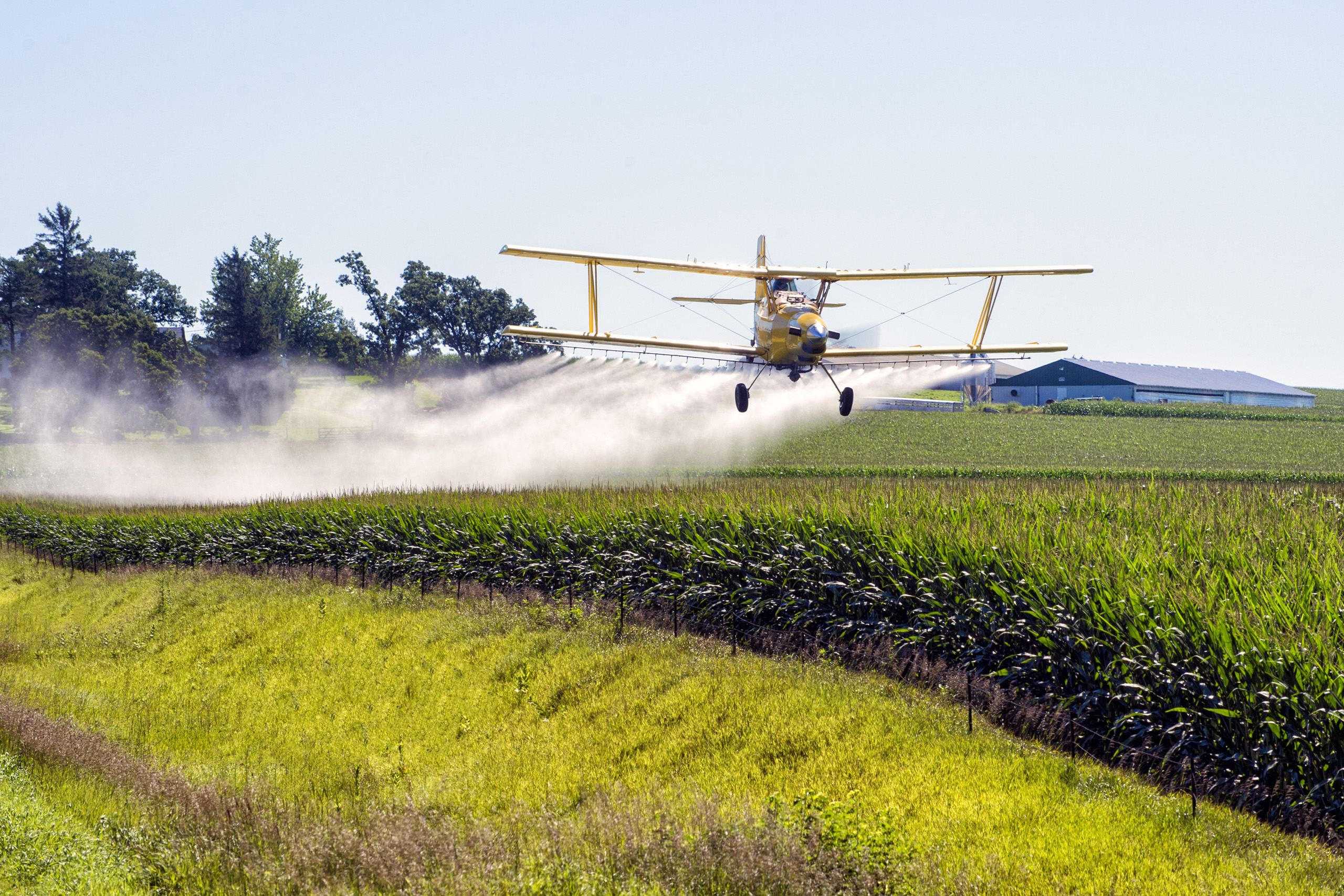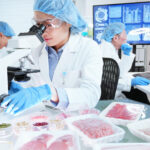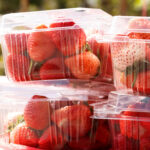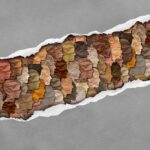By Karen Everstine, PhD, Technical Director – Food Safety Solutions
The International Association for Food Protection (IAFP) was held in the beautiful city of Toronto this year. We convened a session titled, “Ensuring Honey Authenticity – Recent Developments.” The session featured three incredibly knowledgeable and passionate speakers Norberto García, Professor of Apiculture and senior advisor to the main Argentine honey exporter (NEXCO), Marisa Amadei Enghelmayer, Quality Manager and Technical Laboratory Director for NEXCO, and Jodie Goldsworthy, co-founder and Director of Beechworth Honey Group in Australia.
“If you do not have bees, many food chains are in danger.”
Norberto spoke first about the work of the USP Food Chemicals Codex (FCC) Expert Panel to create a honey standard and a honey fraud mitigation guidance document. USP has historically created monographs for food ingredients, which are documents that describe what it means for an ingredient (often a food additive) to be food grade. More recently, USP has also published identity standards to help describe and ensure the quality of food commodities with natural variation, such as pomegranate juice and olive oil.
The USP Honey Standard is a document that describes honey (its characteristics and production methods), basic methods to identify a substance as honey, and additional methods available to further ensure honey quality and authenticity, including the botanical and geographic origin and the addition of foreign sugars. The USP standard is the most updated internationally accepted honey standard currently available. The honey identity standard recommends a combined testing approach to ensure the authenticity of honey, including both targeted and non-targeted methods.
More recently, the expert panel has been writing a guidance document targeted specifically at reducing the risk of honey fraud. This document will present a holistic and adaptable framework for evaluating various aspects of fraud risk (supply chain factors, audit strategy, history of food safety issues, economic data, etc.). A robust honey fraud mitigation plan can reduce risk and inform an efficient and cost-effective testing strategy in honey supply chains.
“The adulteration of honey is a dynamic phenomenon.”
Marisa presented in-depth information on the complexities of routine honey testing for quality and authenticity. Honey, although a seemingly simple product, is a complex matrix with a highly variable composition that is dependent upon geography, nectar source, climate conditions, and beekeeping practices. Although honeys are similar in their main components (sugars and water), it is the molecules occurring in very low concentrations that impart characteristics such as flavor, color, and antioxidant and antimicrobial activity.
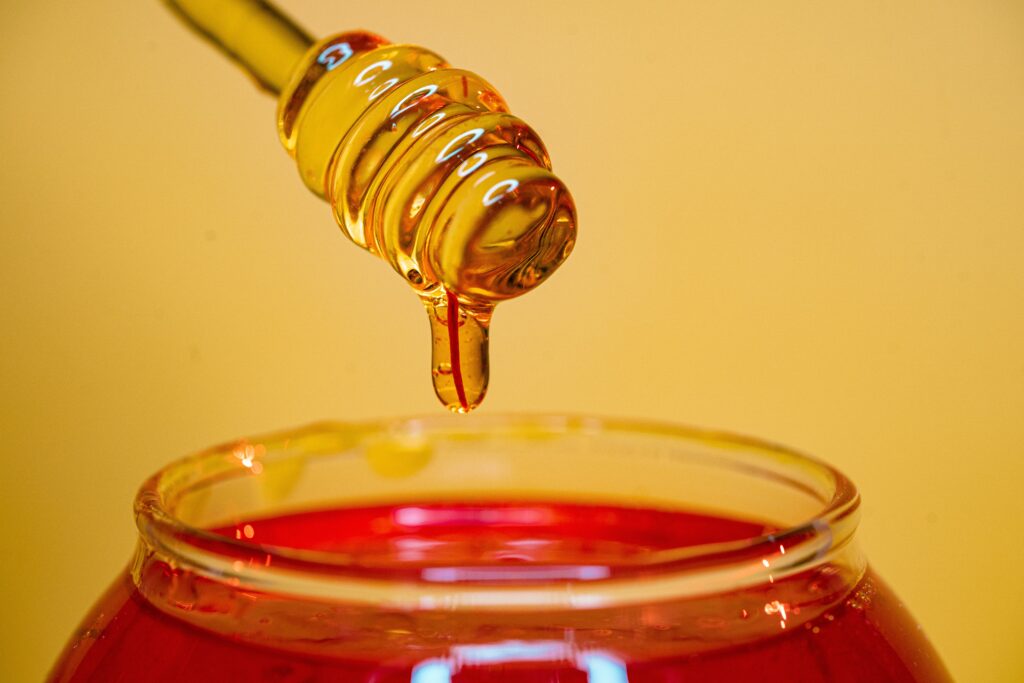
Characterization tests for honey (color, moisture, conductivity, free acidity, sugar profile, etc.) are important to avoid false positive and negative tests for adulteration. One important aspect of Marisa’s work is to understand and differentiate natural compositional variation from intentional fraudulent practices and from unintentional contamination and bad beekeeping practices.
Marisa discussed the main adulterants her lab has identified in honey and presented an overview of all relevant authenticity tests for honey (both specific marker methods and screening methods). She noted that, although a technology like NMR is very promising, it cannot currently be a stand-alone method for honey authenticity because it requires large reference databases, has low sensitivity to C4 syrups, and is not currently a standardized method for honey. Finally, Marisa presented a detailed decision criteria for honey authenticity based on a both traceability data and the use of complementary laboratory methods (see below).

Source: Marisa Amadei Enghelmayer and NEXCO, S.A.
“You can’t import pollination services”
Our final speaker, Jodie, talked extensively about her experience as a beekeeper in Australia and running Beechworth Honey Group. Australia has a highly complex beekeeping system; for example, bees are moved 8-10 times per season (much more often than in the U.S.). This leads to higher costs of production and can leave domestic beekeepers vulnerable to global honey market forces. Jodie noted a study of the Australian honeybee industry that reported a 25% decrease in the number of beekeepers and beehive numbers over a 10-year period. Australian honeybees pollinate 2/3 of Australian produce, so supporting domestic beekeepers is vital for agriculture. Low priced honey imports, mainly from China, have put pressures on domestic beekeepers and created a situation where domestic beekeepers need “premiumization” to stay in business (such as producing single varietal or minimally processed honeys).
Jodie also talked about a specific honey fraud incident in 2018 that received widespread media attention. It was a compelling example of applying complex honey testing methods to a real-world situation with the added pressures of retailer demands and media attention. Although, in this case, confusion about authenticity testing meant there were ultimately no recalls, consumers “voted with their wallets.” Jodie concluded from this situation that testing alone would not be a singular long-term answer to honey authenticity.
Beechworth has developed an extension honey validation system that prioritizes forensic methods and transparency to the hive and to the plant. This system includes an evaluation of sensory characteristics related to geographic location, confirmation of the flowering time and alignment with declared honey gathering, color and texture evaluation, and cross-checking with the Australian “honey bible.” Beechworth honey works hard to raise awareness of the importance of honey authenticity and beekeeping, including educating children through their Beechworth Bee School, and to build trust with consumers.
If you source honey for your business or simply enjoy honey as a consumer, you can watch a recording of the entire IAFP session (available for a fee this link) and follow the work of these experts in the future.

Karen Everstine, PhD, Technical Director – Food Safety Solutions
Karen Everstine is the Technical Director, Food Safety Solutions at FoodChain ID, where she manages and provides technical expertise for food safety data tools, leads food fraud prevention consulting activities, and creates training materials and educational content. She helps clients meet GFSI and regulatory requirements and use food safety data and information effectively to ensure consumer health and brand protection.
Karen completed MPH and PhD degrees in public health at the University of Minnesota where she received Department of Homeland Security Career Development Grant. She previously managed food safety and defense research projects at the University-based Food Protection and Defense Institute. She was also integral to the development and successful launch of the Food Fraud Database, FoodChain ID’s curated, searchable database of food fraud records to support GFSI-required vulnerability assessments.


